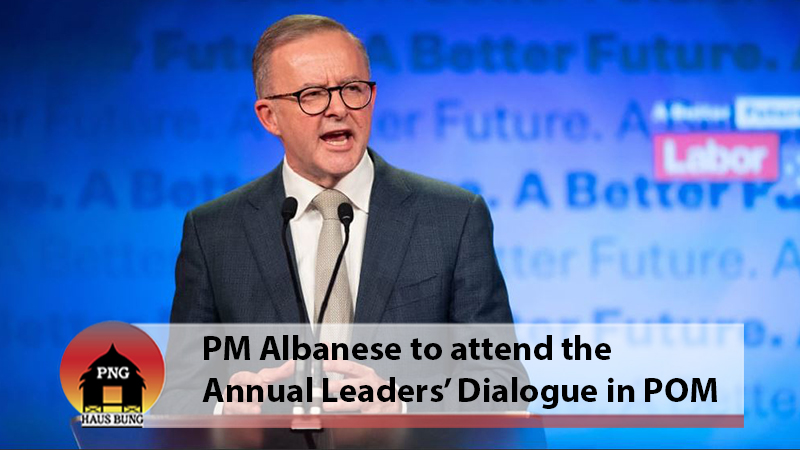Prime Minister Anthony Albanese will lead a delegation to Papua New Guinea on 12-13 December.
The visit comes as our two nations approach the 50th anniversary of bilateral relations following Papua New Guinea’s independence in 1975.
Prime Minister Albanese will join his host, Prime Minister James Marape, for the Annual Leaders’ Dialogue in Port Moresby.
The meeting will continue to strengthen the partnership between the Prime Ministers, who have met at the Pacific Islands Forum in Suva, the Prime Ministers’ XIII Rugby League match in Brisbane, the APEC Economic Leaders’ Meeting in Bangkok, and travelled to Tokyo for the funeral of the former Prime Minister of Japan, Mr Abe Shinzo AC. In addition to visiting Port Moresby, Prime Minister Albanese will travel with Prime Minister Marape to Wewak on the northern coast of Papua New Guinea.
In Wewak Prime Minister Albanese will visit the resting place of the founding Prime Minister of Papua New Guinea, the late Grand Chief Sir Michael Somare.
He will also visit the Japanese Memorial Peace Park and Moem Barracks. This will be the first visit by an Australian Prime Minister to Papua New Guinea since 2018.
Quotes attributable to Prime Minister Albanese: “This will be my first visit to Papua New Guinea as Prime Minister and the first in-person leaders’ talks since 2019, when Prime Minister Marape visited Australia.
“Australia and Papua New Guinea are close neighbours and even closer friends. Our deep ties are underpinned by a common history, shared values and continued collaboration.
“The strength of our modern relationship draws on bonds from our shared past, including those forged on the Kokoda Track eighty years ago – we will never forget the debt we owe the brave Papua New Guineans who walked alongside Australian soldiers in this campaign.
“We also have a shared vision for the future: a more prosperous, unified and secure region.
“I look forward to meeting with Prime Minister Marape in Port Moresby and discussing our cooperation across trade, economic recovery, infrastructure, defence, policing and climate resilience.”

